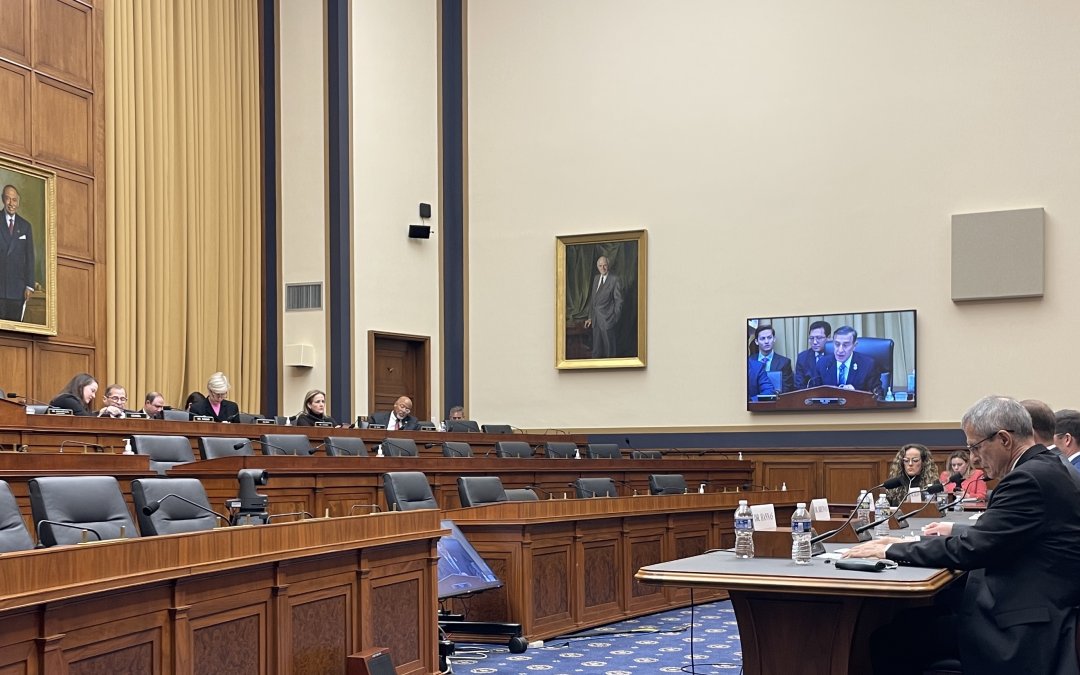WASHINGTON – Artificial intelligence and cybersecurity researchers urged lawmakers on Thursday to enact tougher legislation to protects American companies and their intellectual property from cyberattacks, especially those from China.
“The Chinese Communist Party, leading the PRC, is the world’s most egregious actor in terms of cyber espionage, targeting private firms,” Benjamin Jensen, a senior fellow at the Center for Strategic and International Studies, said during a hearing before the House Judiciary Subcommittee on Courts, Intellectual Property, and the Internet.
Jensen told lawmakers that American companies are frequent targets of IP theft and cyberattacks from foreign actors. One in five U.S. corporations has reported having their IP stolen, and the actual amount is likely to be even higher, he added.
The emergence of AI will likely intensify IP theft. Jensen said many of the most advanced generative AI models today do not come from large, established companies but from research labs and startups, which may not have the budget to arm themselves with robust cybersecurity protections.
But instead of heavier regulation on licensing and patents, Jensen said he favors a “free market” approach that would not impede innovation. He recommended lawmakers establish tax credits or subsidies to small businesses to invest in cybersecurity and protect their own IP. For larger companies, he said there needs to be clearer guidelines for them to report theft to federal agencies.
Government agencies, including the Department of Homeland Security and its Cybersecurity & Infrastructure Security Agency, offer education programs to small business and education institutions to raise awareness of cybersecurity threats.
John Brennan, the public sector general manager at Scale AI, said federal agencies need to continue and strengthen those programs.
“It is a persistent threat, and we need to think about [cybersecurity] like changing the batteries in our smoke detectors,” Brennan said.
The hearing comes as the Commerce Department announced on Tuesday an additional set of export controls that focuses on curbing China’s AI developments. These new restrictions would further limit the export of advanced semiconductors, necessary in creating AI technologies.
Commerce will also implement a license requirement for companies to ship advanced semiconductors to 21 countries, including Belarus, Iraq and Venezuela, to prevent the chips from flowing to China through these “countries of concern.” Most of these new rules will go into effect next month.
William Hannas, the lead analyst at Georgetown University’s Center for Security and Emerging Technology, however, said he does not think export controls on a specific list of technologies is the right approach to protect national security. Because of the rate of innovation, the list is prone to become obsolete.
Jensen shared Hannas’ assessment of export controls. Rather, he said the federal government should focus on investing more money to out-innovate competitors.
The subcommittee’s ranking member, Rep. Hank Johnson (D-Ga.), warned that the U.S., a leader in researching and building AI technologies, lags behind the EU and China in AI regulation.
Congress has been devoting a lot of energy to debating how to regulate AI development. In the Senate, Majority Leader Chuck Schumer (D-N.Y.) has planned a series of nine “AI Insight Forums” among senators and industry and civil society leaders and experts, the first of which took place in September.
Several House members, including Rep. Ted Lieu (D-Calif.), who sits on the Judiciary subcommittee, have introduced a bill for an independent commission to study AI oversight and regulation. And the Biden administration has been teasing for weeks a forthcoming executive order to direct the federal government’s use of AI.
Brennan echoed Johnson’s concern, but he said the federal government must take an approach to AI regulation that balances innovation and national interests with guardrails that protect civil liberties and democratic values.
“The U.S. has always led the world in adoption of new technologies, and in AI it will be no different,” Brennan said. “But when it comes to governance, it is better to be right than to be first.”


